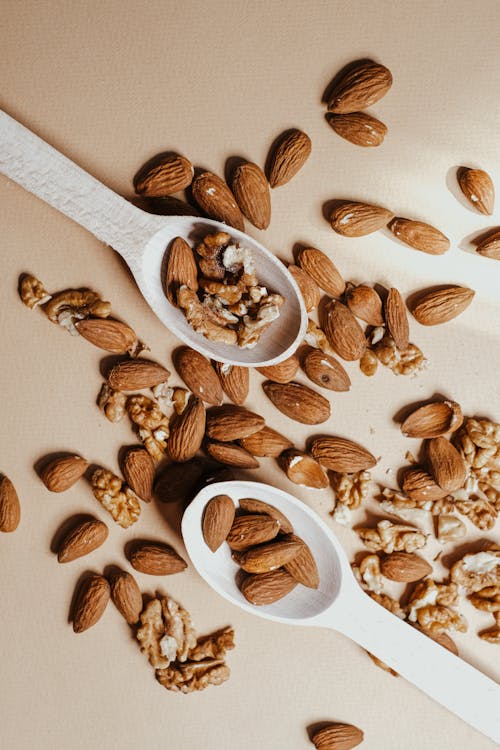Functional Foods: Everyday Ingredients with Extra Health Benefits
Functional foods are gaining popularity for their dual role in providing essential nutrients and offering additional health benefits. Unlike traditional foods, functional foods go beyond basic nutrition and can play a significant part in enhancing overall health and preventing disease. This article explores some everyday ingredients that pack a powerful punch when it comes to improving your well-being.
What Are Functional Foods?
Functional foods are defined as foods that have a potentially positive effect on health beyond basic nutrition. They contain bioactive compounds that can help reduce the risk of chronic diseases, improve overall health, and enhance performance. Common examples include fortified foods, whole foods rich in beneficial compounds, and dietary supplements.
Everyday Functional Foods and Their Benefits

1. Berries
Berries such as blueberries, strawberries, and raspberries are not only delicious but are also packed with antioxidants, vitamins, and fiber. These nutrients help combat oxidative stress, reduce inflammation, and support heart health. Berries are also linked to improved brain function and may help protect against age-related cognitive decline .
2. Nuts and Seeds

Nuts and seeds, including almonds, walnuts, flaxseeds, and chia seeds, are excellent sources of healthy fats, protein, fiber, vitamins, and minerals. They have been associated with numerous health benefits, such as improved heart health, reduced inflammation, and better digestive health. Regular consumption of nuts and seeds can also aid in weight management and provide sustained energy .
3. Leafy Greens

Leafy greens like spinach, kale, and Swiss chard are rich in vitamins A, C, and K, as well as folate, iron, and calcium. These greens are known for their anti-inflammatory properties and their role in supporting bone health, improving digestion, and reducing the risk of chronic diseases such as heart disease and diabetes. Incorporating a variety of leafy greens into your diet can provide a wide range of health benefits .
4. Yogurt

Yogurt is a probiotic-rich food that supports gut health by promoting the growth of beneficial bacteria. A healthy gut microbiome is essential for digestion, immune function, and mental health. Yogurt is also a good source of calcium and protein, making it an excellent choice for maintaining bone health and muscle function. Opt for plain, unsweetened yogurt to avoid added sugars and maximize health benefits .
5. Oats
Oats are a whole grain that provides a good source of fiber, particularly beta-glucan, which has been shown to lower cholesterol levels and improve heart health. Oats also have a low glycemic index, meaning they can help regulate blood sugar levels. Including oats in your diet can support digestive health, provide sustained energy, and reduce the risk of chronic diseases .
6. Garlic

Garlic is a potent functional food known for its medicinal properties. It contains sulfur compounds that have been shown to boost the immune system, reduce blood pressure, and lower cholesterol levels. Garlic also has antioxidant and anti-inflammatory effects, making it a valuable addition to a healthy diet .
7. Green Tea

Green tea is rich in antioxidants, particularly catechins, which have been linked to a variety of health benefits. These include improved brain function, fat loss, and a lower risk of cancer and cardiovascular disease. Drinking green tea regularly can also promote relaxation and reduce stress, thanks to the presence of the amino acid L-theanine .
Incorporating Functional Foods into Your Diet
Adding functional foods to your daily meals doesn't have to be complicated. Here are some simple tips to get you started:
- Breakfast: Top your yogurt or oatmeal with fresh berries and a sprinkle of nuts or seeds.
- Lunch: Add a handful of leafy greens to your sandwiches, wraps, or salads.
- Dinner: Use garlic in your cooking for added flavor and health benefits.
- Snacks: Enjoy a cup of green tea or a small portion of nuts and seeds.
By making these small changes, you can significantly boost your nutrient intake and enjoy the added health benefits of functional foods.
Conclusion
Functional foods offer a simple yet powerful way to enhance your diet and improve your health. By incorporating these nutrient-rich ingredients into your daily meals, you can support your overall well-being and reduce the risk of chronic diseases. Remember, a balanced diet combined with a healthy lifestyle is key to achieving optimal health.
References
- Harvard T.H. Chan School of Public Health. (n.d.). Berries. Retrieved from https://www.hsph.harvard.edu/nutritionsource/food-features/berries/
- Mayo Clinic Staff. (2021, February 3). Nuts and your heart: Eating nuts for heart health. Mayo Clinic. Retrieved from https://www.mayoclinic.org/diseases-conditions/heart-disease/in-depth/nuts/art-20046635
- Healthline. (2020, January 3). The Top 14 Health Benefits of Eating Kale. Retrieved from https://www.healthline.com/nutrition/benefits-of-kale
- National Institutes of Health. (2020, March 26). Probiotics: What You Need To Know. Retrieved from https://www.nccih.nih.gov/health/probiotics-what-you-need-to-know
- American Heart Association. (2018, May 18). Eat more fiber for better heart health. Retrieved from https://www.heart.org/en/news/2018/05/18/eat-more-fiber-for-better-heart-health
- Cleveland Clinic. (2021, October 20). The Health Benefits of Garlic. Retrieved from https://health.clevelandclinic.org/the-health-benefits-of-garlic/
- Medical News Today. (2020, April 17). The possible health benefits of green tea. Retrieved from https://www.medicalnewstoday.com/articles/269538

 Cricket Score Counter
Cricket Score Counter Heads or Tails
Heads or Tails
You have not logged in, please Login to comment.